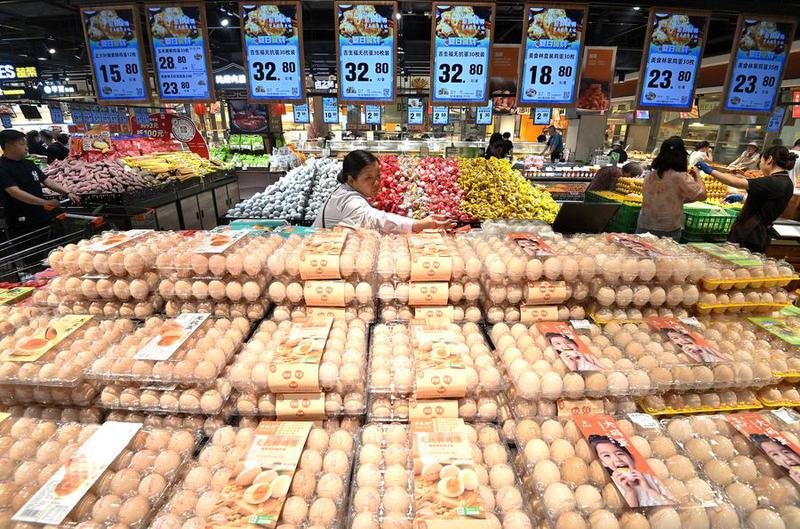
China should reinforce its commitment to boosting domestic demand with new incremental policies in the second half, in a bid to solidify the recovery trend seen in the first six months, leading economists said on Wednesday.
As the country is navigating a more complex global environment, they urged policymakers to double down on both fiscal and monetary policy support and further deepen reforms to boost market confidence and expectations.
Huang Hanquan, head of the Chinese Academy of Macroeconomic Research, said that the government must capitalize on the current window of opportunity where the economy and social expectations are relatively stable, to prepare reserves of a batch of incremental policies to ensure sustained growth for the remainder of the year.
READ MORE: Economist: China could issue trillions in bonds to ease local debt
"The first half of the year showed encouraging results, mainly driven by intensified policy support and key reforms," Huang said at a seminar hosted by the academy in Beijing on Wednesday.
The National Bureau of Statistics said the economy expanded 5.3 percent year-on-year in the first half, above the around 5 percent full-year target.
He stressed that while China's internal growth drivers, including its complete industrial system and ultra-large domestic market, remain strong, challenges like lingering weak demand and ongoing adjustments in the real estate sector are also putting pressure on the economy.
To mitigate these risks, Huang recommended enhancing both fiscal and monetary policy support, as well as accelerating key reforms to maintain stable growth.
"We must ensure that current policies, such as fiscal and monetary measures, are effectively utilized to achieve higher efficiency. The government should also strengthen policy reserves to buffer potential shocks amid mounting external uncertainties."
According to a report by the Chinese Academy of Macroeconomic Research's Economic Research Institute, it is advisable for the government to strengthen both fiscal and monetary policy support, including expanding the scope for trade-in deals for consumer goods by piloting the issuance of consumption subsidies for cultural tourism, senior care, healthcare and education services.
On the fiscal policy front, the report said policymakers should further optimize structural monetary policy tools, with a key focus on bolstering support for major strategies, key areas and weak links in the economy.
During the seminar, Gao Peiyong, former vice-president of the Chinese Academy of Social Sciences, emphasized the growing importance of domestic consumption as the primary driver of economic growth.
ALSO READ: China's GDP expands 5.3% year-on-year in H1
NBS data showed final consumption accounted for 52 percent of China's economic growth in the first half. In the second quarter, final consumption contributed 52.3 percent to economic growth, slightly higher than the figure in the first quarter.
"Consumption is increasingly becoming a key engine for China's economic recovery, and there is still significant untapped potential in this area," Gao said.
To unlock the full potential of consumer demand, China must not only focus on short-term policy interventions, but also address the underlying issues of income distribution and wealth accumulation through systemic reforms, which would provide a more stable foundation for long-term consumption growth, he added.
Contact the writer at ouyangshijia@chinadaily.com.cn


